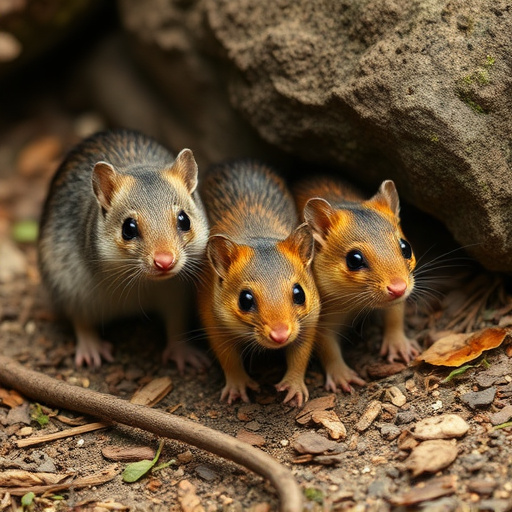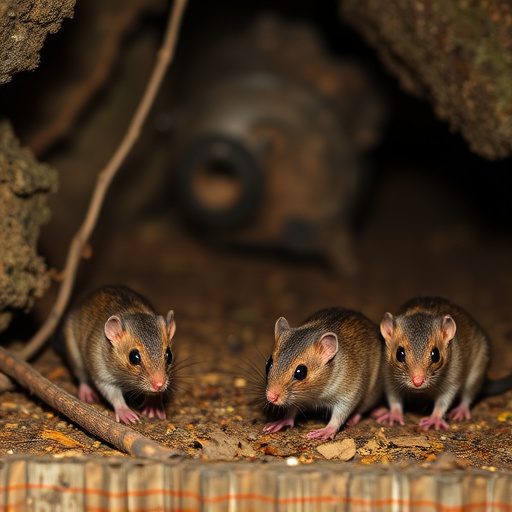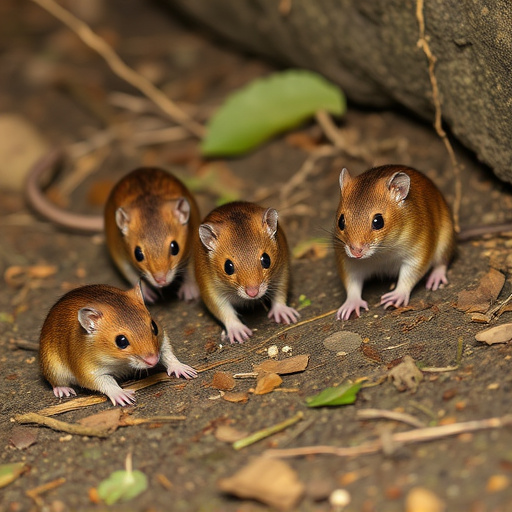In Oro Valley, Arizona, understanding local rodent behavior is crucial for effective seasonal rodent control. Rodents like squirrels, mice, and rats adapt their patterns based on temperature and food availability. The Tucson area's climate dictates the use of water-rich baits in hot months and scent-based baits during cooler seasons. Rodent control specialists recommend personalized strategies that account for these shifts. Combining live traps with bait stations, tailored to local species' habits, ensures an environmentally friendly approach to rodent control. Seasonal planting, landscaping, and targeted traps complement natural strategies for year-round effective and sustainable rodent control in Tucson and Oro Valley.
Oro Valley’s varying seasons present unique challenges for rodent control. Understanding local rodent behavior and the impact of weather is crucial for effective management. This guide explores seasonal strategies, focusing on traps and baits tailored to Tucson’s climate. Learn how to choose the right tools and implement a proactive approach to combat rodents year-round, ensuring a safer, more comfortable living environment for residents across the region. Discover expert tips for optimal rodent control in Tucson.
- Understanding Rodent Behavior in Oro Valley's Seasonal Climate
- Choosing the Right Traps and Baits for Effective Control
- Implementing a Seasonal Strategy for Long-Term Rodent Management in Tucson
Understanding Rodent Behavior in Oro Valley's Seasonal Climate

In Oro Valley, Arizona, understanding local rodent behavior is crucial for effective rodent control during the region’s distinct seasonal climate. Rodents like squirrels, mice, and rats are highly adaptable to changing environments, and their patterns shift with the temperature and available food sources. During the warmer spring and summer months, these pests often seek shelter in abundant vegetation and structures as they build nests and raise young. As temperatures drop in autumn, they become more active, foraging for food reserves to prepare for winter hibernation or migration.
The seasonal climate in Tucson also influences what baits and traps are most effective. In the hotter months, rodents might prefer water-rich baits while avoiding those with strong smells. Conversely, during cooler seasons, scent-based baits can be more appealing as rodents have a reduced appetite for water. Rodent control specialists in Tucson recommend tailored strategies that consider these behavioral shifts to ensure success and minimize environmental impact.
Choosing the Right Traps and Baits for Effective Control

When it comes to seasonal rodent control in Oro Valley, selecting the appropriate traps and baits is key to success. Understanding the local wildlife, particularly rodents, their behaviors, and preferences, allows for more effective management. For instance, in Tucson’s climate, rodents like squirrels, rats, and mice thrive during certain seasons due to abundant food sources and shelter opportunities.
For optimal rodent control Tucson residents should consider using a combination of live traps and bait stations. Live traps humanely capture rodents without harming them, ideal for areas where non-target species might be present. Bait stations, on the other hand, use appealing scents and substances (baits) to attract and eliminate targeted rodents. Localized knowledge about rodent habits and choosing the right baits—such as peanut butter, seeds, or fruit-based options—ensures a more successful and environmentally friendly approach to rodent control.
Implementing a Seasonal Strategy for Long-Term Rodent Management in Tucson

In Tucson, including Oro Valley, a seasonal approach to rodent management is both effective and sustainable. Understanding that rodent populations fluctuate with the climate, property owners and managers can implement tailored strategies throughout the year. During the warmer months, rodents are more active and abundant, making spring and summer ideal for setting traps and applying baits. As temperatures cool in fall, activity increases again, signaling the need for enhanced precautions.
A long-term rodent control strategy should consider the unique behaviors and preferences of local species. For example, in Tucson’s arid environment, rodents like the desert deer mouse are prevalent. These mice are particularly attracted to seeds, nuts, and fruits, making them susceptible to baiting methods using these food sources. Additionally, seasonal planting and landscaping can serve as both a deterrent and a source of food, as certain plants repel rodents while others provide shelter. By combining these natural strategies with targeted traps and baits, residents can achieve successful rodent control throughout the year, ensuring a comfortable and secure living environment.
In light of the seasonal fluctuations in Oro Valley’s climate, implementing a strategic and adaptive rodent control approach is key. By understanding local rodent behavior and utilizing the right traps and baits, residents can effectively manage these pests. A long-term strategy that incorporates seasonal changes ensures successful rodent control in Tucson, maintaining a comfortable and pest-free environment throughout the year.
